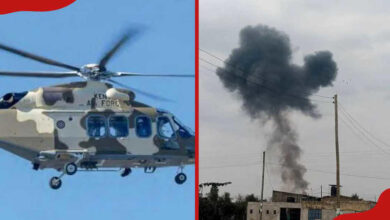Iran-Israel Tensions: The ripple effect on Ghana’s economy and daily life
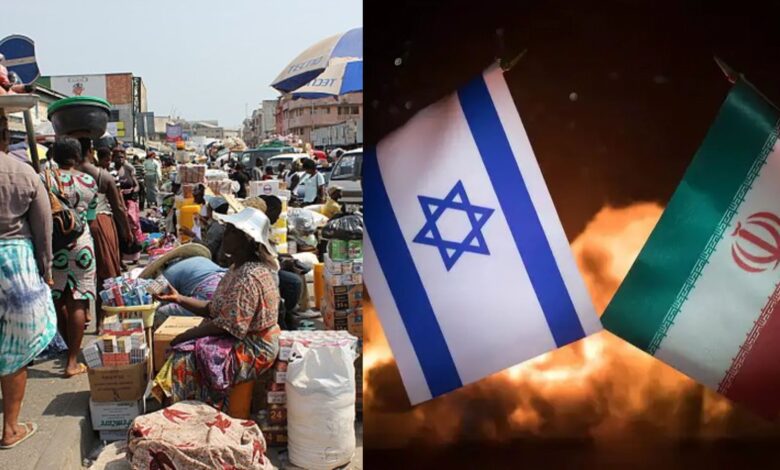
It’s easy to think that a war between Iran and Israel has nothing to do with us here in Ghana. After all, it’s happening far away in the Middle East, right? But in today’s global economy, conflicts like this don’t stay in one place; their effects travel across borders and oceans, landing right at our doorstep.
Whether you’re a trotro driver, a market woman, a student, or an office worker, international issues have a funny way of showing up in your daily struggles.
And with tensions rising between these two powerful nations, many Ghanaians are beginning to ask, “How will this affect me?”
The global economic web of conflict
The Iran-Israel conflict sends shockwaves through international markets. Crude oil prices go up and down dramatically.
MUST READ: Break U.S. laws and risk deportation, visa ban – Embassy warns Ghanaians
This happens because people worry about potential problems with global energy supplies. Iran holds a strategic position in oil production and sits close to critical shipping routes in the Persian Gulf region.
Economic analysts see that tensions in the Middle East always cause what economists call a “risk premium” in oil markets.
This happens when traders and investors think about potential supply problems when they set commodity prices. This often makes prices go up more than what supply and demand would normally suggest.
Ghana’s vulnerability to external shocks
Ghana’s economic structure makes it very vulnerable to global oil price changes. Ghana imports petroleum products and faces direct exposure to international crude oil price changes.
READ ALSO: Hearts of Oak re-appoint ‘sacked’ Ouattara as special advisor to the board
Economist Professor Patrick Asuming, speaking on Citi Business News on June 17, 2025, cautioned that external shocks such as geopolitical conflicts could derail that progress.
He explained that Ghana’s heavy reliance on oil imports and exposure to global commodity price fluctuations make it vulnerable to supply chain disruptions and energy price volatility—both of which are likely in the event of a broader escalation in the Middle East.
It is likely it is going to disrupt oil production, but the other thing is the disruption of trade routes, and so if prices rise, it is definitely going to affect the Ghanaian economy
He added that
What we can do to help ourselves is to manage our economy better. Although in the first five months of the year, things have been stable, there are still difficult decisions ahead of us
Rising fuel prices around the world mean higher import costs, increased inflation, and pressure on foreign exchange reserves.
The effects of Middle Eastern tensions on Ghana’s economy work through several connected channels:
Fuel import costs and transportation
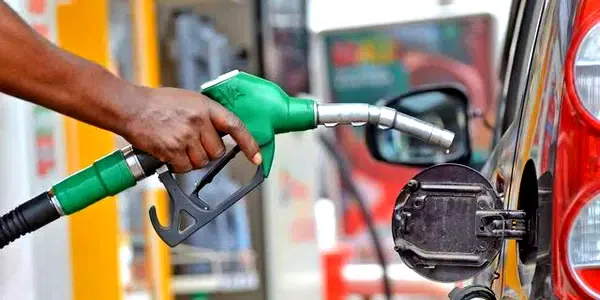
Ghana imports most of its refined petroleum products. This makes the country vulnerable to global price shocks.
READ MORE: Club World Cup: Messi-led Inter Miami set up PSG clash after draw with Palmeiras
When international crude oil prices rise because of tensions, Ghana’s fuel import bill goes up a lot. This cost increase affects many sectors of the economy, from transportation companies to manufacturing industries that need fuel for operations.
The transportation sector forms the backbone of Ghana’s domestic trade and commerce. It feels immediate pressure when fuel costs rise.
Commercial vehicle operators, shipping companies, and logistics firms face higher operating costs. They usually pass these costs on to consumers through higher transport fares and shipping costs.
Inflation pressures on consumer goods
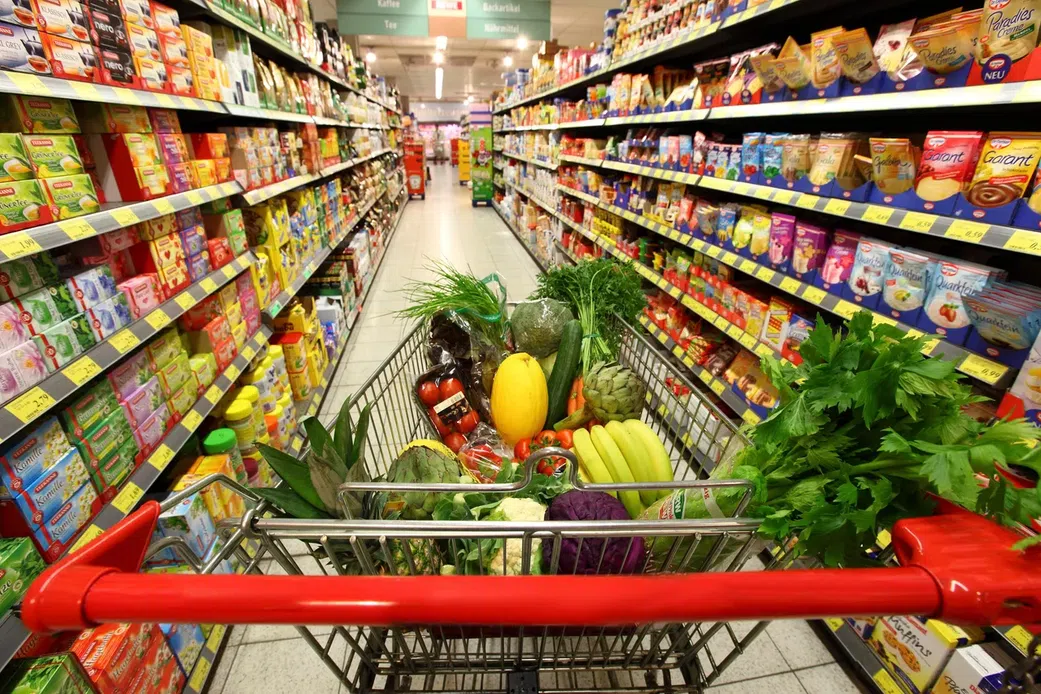
READ THIS: How a young KATH doctor allegedly left man ‘paralysed’ after a medical procedure [Video]
Rising fuel costs create chain effects throughout Ghana’s economy. When transportation becomes more expensive, the cost of moving goods from ports to markets goes up.
This affects the prices of essential items. Recent analysis shows that a 7% rise in world market crude oil prices can trigger higher fuel costs in Ghana. This adds to broader inflation pressures.
Food prices are especially sensitive to fuel cost changes. Agricultural products must be transported from rural farming areas to urban markets.
CHECK THIS OUT: Love beans but hate the gas? Here are effective ways to get rid of it
This creates a direct link between Middle Eastern tensions and the cost of basic necessities for Ghanaian households.
Foreign exchange and budget pressures

Ghana depends on foreign currency to buy petroleum products. Rising oil prices make pressure on the country’s foreign exchange reserves worse.
When oil prices go up, Ghana must use more foreign currency to maintain its fuel imports. This can affect the stability of the cedi and create broader economic imbalances.
READ ALSO: We’re wasting time, resources in fight against galamsey – Former NPP MP
The government also faces budget challenges when oil prices rise, especially if fuel subsidies continue to protect consumers from price shocks.
Higher subsidy costs can strain government budgets. This can affect public spending on essential services and infrastructure development.
Daily life effects for Ghanaians
The economic impacts of Iran-Israel tensions translate into real effects on ordinary Ghanaians’ daily lives:
Household budget pressures
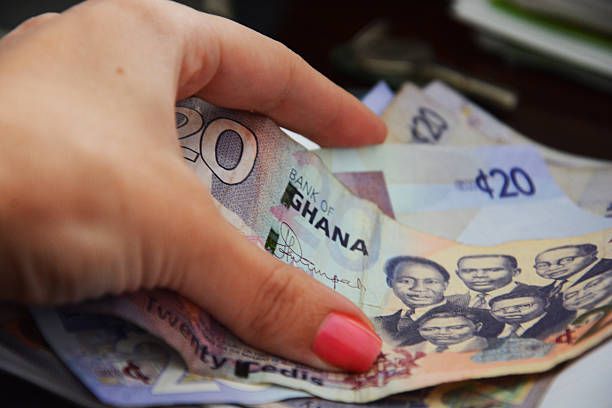
Families across Ghana face increased transportation costs for commuting to work, school, and accessing essential services.
READ MORE: Club officials know hooligans causing trouble in Ghanaian football – Eric Alagidede
Oil-importing countries like Ghana experience higher inflation and slower economic growth if Middle Eastern conflicts continue. This directly affects household purchasing power.
Small-scale traders and informal sector workers form a significant portion of Ghana’s workforce. They face particular challenges.
These individuals often operate on thin profit margins and struggle to absorb increased transportation and operational costs without affecting their livelihoods.
Business operational challenges

Small and medium enterprises (SMEs) in Ghana face operational difficulties when fuel costs rise. Manufacturing businesses that rely on generators for power, delivery services, and retail operations with significant logistics components all experience increased operational expenses.
CHECK THIS OUT: Hearts of Oak transfer ban related to Salim Adams being resolved – Club PRO
These businesses must choose between absorbing higher costs or passing them on to consumers. Both options carry significant implications for business sustainability and consumer welfare.
Regional economic differences
Rural communities in Ghana often experience stronger effects from fuel price increases because of longer transportation distances and limited infrastructure.
Agricultural communities may face higher costs for farm inputs and reduced profitability for agricultural exports. This can affect food security and rural development.
Government response and policy considerations
Ghana’s policymakers face complex decisions when managing the economic impacts of external shocks like Middle Eastern conflicts.
READ FURTHER: Accra businessman donates GH¢15,000 to elderly volunteer street sweeper [Video]
The government must balance protecting consumers from fuel price increases while maintaining budget sustainability and avoiding unsustainable subsidy burdens.
Strategic petroleum reserves, diversified energy sources, and improved fuel efficiency initiatives represent potential long-term solutions to reduce Ghana’s vulnerability to international oil price shocks.
However, implementing these measures requires significant investment and policy coordination.
Long-term economic resilience
The Iran-Israel tensions highlight Ghana’s need to develop greater economic resilience against external shocks. This includes diversifying energy sources, improving domestic refining capacity, and developing alternative transportation and energy infrastructure that reduces dependence on imported petroleum products.
Regional economic integration within West Africa can also provide opportunities for shared energy infrastructure and collective bargaining power in international energy markets. This can reduce individual countries’ vulnerability to global price shocks.







